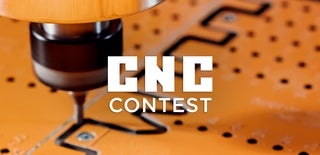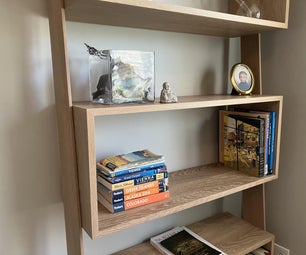Introduction: Legend of Zelda Steampunk Desk
Inspired by the franchise and mixed with a little steampunk flare this desk was built as a birthday present for our youngest son who just loves Zelda.
It is constructed primarily from MDF for ease of painting.
Supplies
(3) 4' X 8' sheets of MDF( Medium Density Fiberboard)
(1) 1/2" diameter 36" long wood dowel
1/4" 48" x 48" polycarbonate sheet
assorted screws
wood glue
Finishing materials (paint I chose metallics)
Step 1: The Design
Although I do use Fusion 360 for my 3D printing designs I wasn't using fusion when I designed this.
I used two pieces of software for this design Google Sketchup and Vectric Aspire.
I made a 3d mock up of the desk in Sketchup to work out the proportions first and then converted the parts to a DXF file format which Aspire could work.
I used Aspire to program the paths for the CNC to follow.
Step 2: Cutting the Parts
I cut the parts using my home built CNC which I made several years ago back before home use CNC's were a thing, it has a fairly small cutting area 26" x 34" but I was able to cut the larger parts by creating an index point whereby I cut the first half of the part, paused the machine, moved the part and aligned the index point with the cutter and finished cutting the remainder of the part.
Step 3: A Fiddly Bit
At first I tried to make the gears on my own but I was having trouble getting the teeth to mesh I mean it had to look like it could actually move right?
I ended up finding a free gear generating software that made DXF files for cutting.
Step 4: Glue, Glue and More Glue
If you have ever worked with MDF then you'll know it soaks up glue like a sponge! The trick to a good solid glue up with it is to apply a light coat of glue and allow it to dry partially before applying the coat which will bond the parts together.
Step 5: Dry Fit
As a final step before painting you should dry fit all of the parts together to make sure nothing needs to be adjusted or sanded.
Step 6: Painting
Painting MDF is fairly straight forward but to aid in keeping the board from soaking up your paint you should first apply a "fill primer" fill primers are heavy bodied to fill in imperfections and as a result do not soak into the MDF as easily as thinner primers so it takes less finish coats to get a good finish.
I chose Rustoleum Aged Metallic for my final coat to give the desk a worn look
Step 7: Conclusion
The last thing needed to finish off the desk is to cut the polycarbonate and place it over the top as the writing surface.
This is my first instructable, I know it's not super detailed but I hope it is at least a little inspirational.
Step 8:

Participated in the
CNC Contest







